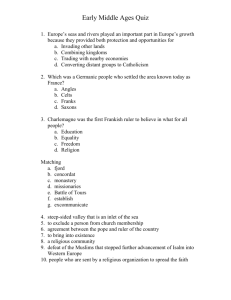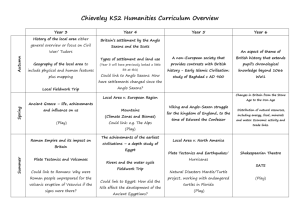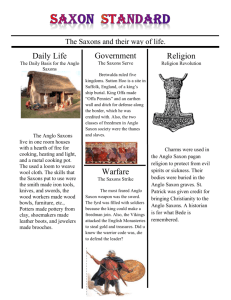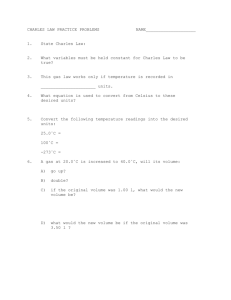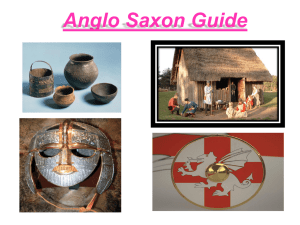From Einhard: The Life of Charlemagne
advertisement
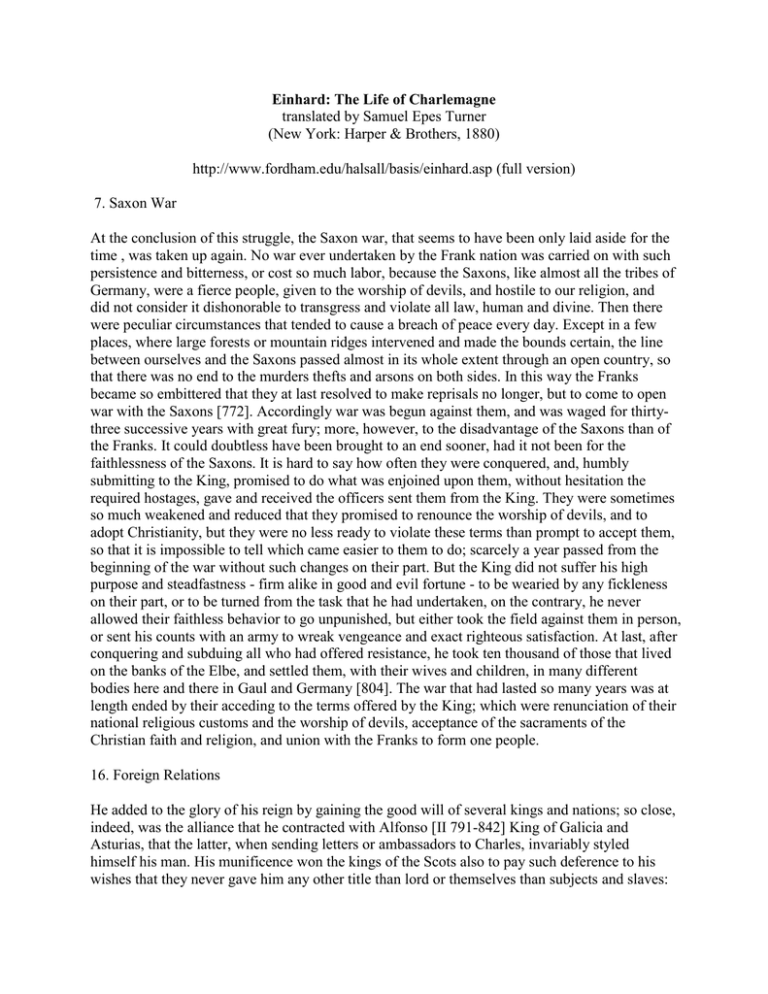
Einhard: The Life of Charlemagne translated by Samuel Epes Turner (New York: Harper & Brothers, 1880) http://www.fordham.edu/halsall/basis/einhard.asp (full version) 7. Saxon War At the conclusion of this struggle, the Saxon war, that seems to have been only laid aside for the time , was taken up again. No war ever undertaken by the Frank nation was carried on with such persistence and bitterness, or cost so much labor, because the Saxons, like almost all the tribes of Germany, were a fierce people, given to the worship of devils, and hostile to our religion, and did not consider it dishonorable to transgress and violate all law, human and divine. Then there were peculiar circumstances that tended to cause a breach of peace every day. Except in a few places, where large forests or mountain ridges intervened and made the bounds certain, the line between ourselves and the Saxons passed almost in its whole extent through an open country, so that there was no end to the murders thefts and arsons on both sides. In this way the Franks became so embittered that they at last resolved to make reprisals no longer, but to come to open war with the Saxons [772]. Accordingly war was begun against them, and was waged for thirtythree successive years with great fury; more, however, to the disadvantage of the Saxons than of the Franks. It could doubtless have been brought to an end sooner, had it not been for the faithlessness of the Saxons. It is hard to say how often they were conquered, and, humbly submitting to the King, promised to do what was enjoined upon them, without hesitation the required hostages, gave and received the officers sent them from the King. They were sometimes so much weakened and reduced that they promised to renounce the worship of devils, and to adopt Christianity, but they were no less ready to violate these terms than prompt to accept them, so that it is impossible to tell which came easier to them to do; scarcely a year passed from the beginning of the war without such changes on their part. But the King did not suffer his high purpose and steadfastness - firm alike in good and evil fortune - to be wearied by any fickleness on their part, or to be turned from the task that he had undertaken, on the contrary, he never allowed their faithless behavior to go unpunished, but either took the field against them in person, or sent his counts with an army to wreak vengeance and exact righteous satisfaction. At last, after conquering and subduing all who had offered resistance, he took ten thousand of those that lived on the banks of the Elbe, and settled them, with their wives and children, in many different bodies here and there in Gaul and Germany [804]. The war that had lasted so many years was at length ended by their acceding to the terms offered by the King; which were renunciation of their national religious customs and the worship of devils, acceptance of the sacraments of the Christian faith and religion, and union with the Franks to form one people. 16. Foreign Relations He added to the glory of his reign by gaining the good will of several kings and nations; so close, indeed, was the alliance that he contracted with Alfonso [II 791-842] King of Galicia and Asturias, that the latter, when sending letters or ambassadors to Charles, invariably styled himself his man. His munificence won the kings of the Scots also to pay such deference to his wishes that they never gave him any other title than lord or themselves than subjects and slaves: there are letters from them extant in which these feelings in his regard are expressed. His relations with Aaron [ie Harun Al-Rashid, 786-809], King of the Persians [the Abbasid Caliphate] , who ruled over almost the whole of the East, India excepted, were so friendly that this prince preferred his favor to that of all the kings and potentates of the earth, and considered that to him alone marks of honor and munificence were due. Accordingly, when the ambassadors sent by Charles to visit the most holy sepulcher and place of resurrection of our Lord and Savior presented themselves before him with gifts, and made known their master's wishes, he not only granted what was asked, but gave possession of that holy and blessed spot. When they returned, he dispatched his ambassadors with them, and sent magnificent gifts, besides stuffs, perfumes, and other rich products of the Eastern lands.. A few years before this, Charles had asked him for an elephant, and he sent the only one that he had. The Emperors of Constantinople, Nicephorus [I 802-811], Michael [I, 811-813], and Leo [V, 813-820], made advances to Charles, and sought friendship and alliance with him by several embassies; and even when the Greeks suspected him of designing to wrest the empire from them, because of his assumption of the title Emperor, they made a close alliance with him, that he might have no cause of offense. In fact, the power of the Franks was always viewed by the Greeks and Romans with a jealous eye, whence the Greek proverb "Have the Frank for your friend, but not for your neighbor."
